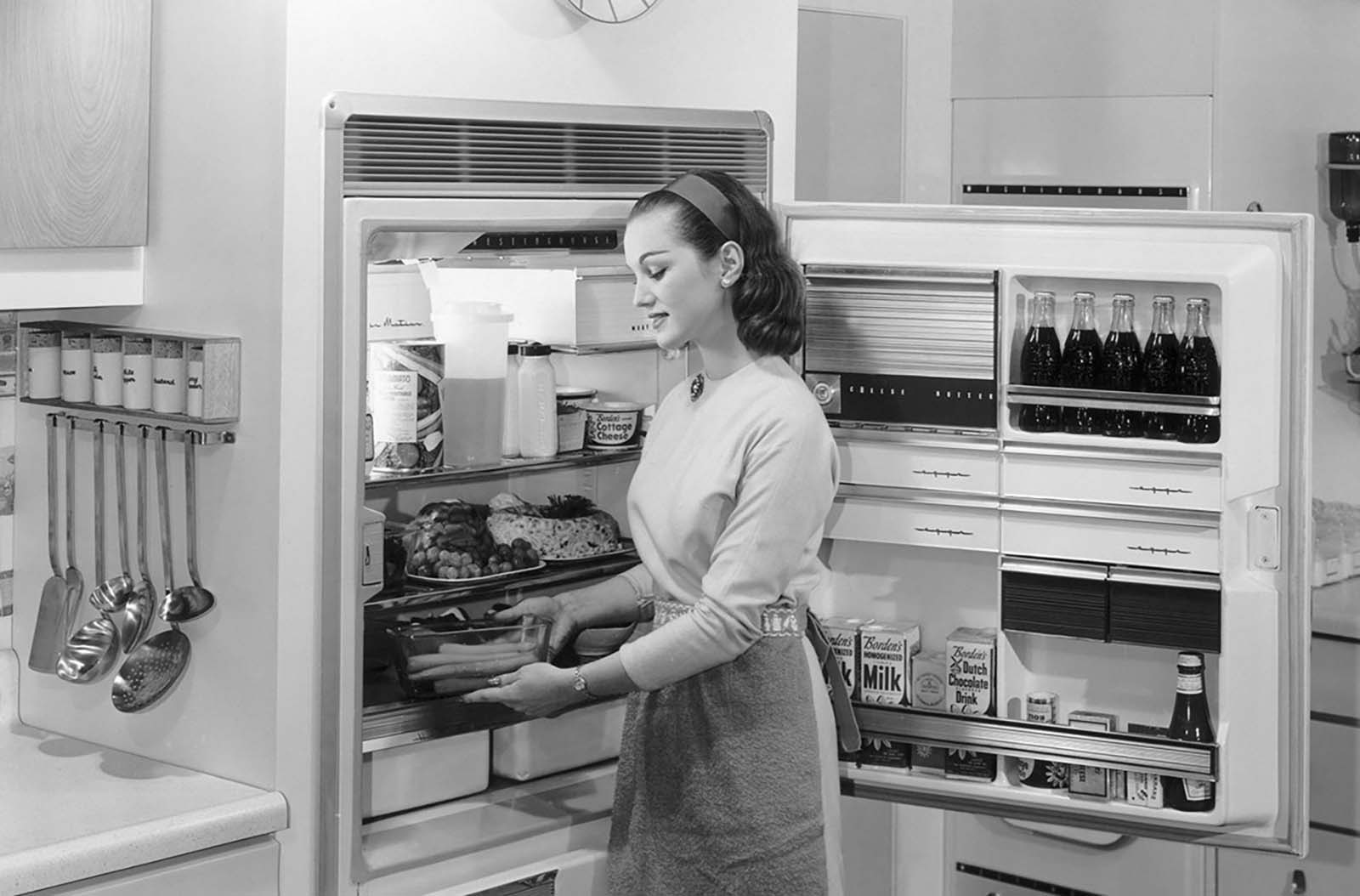
During the mid-20th century, a wave of futuristic optimism swept through society, inspiring people to envision how technology and design would transform their everyday lives.
Nowhere was this spirit of innovation more evident than in the kitchen. From the 1950s to the 1980s, individuals and companies alike conceptualized and presented their captivating visions of the kitchen of the future.
These retro kitchens, with their sleek designs, automation marvels, and ambitious predictions, reflect the aspirations and dreams of a bygone era.
Retro kitchens of the future embraced clean lines, geometric shapes, and a streamlined aesthetic that exuded a sense of modernity.
Bright and bold colors, such as vibrant oranges, lime greens, and sunny yellows, adorned appliances, cabinets, and countertops.

The 1953 KitchenAid “Television Kitchen”.
Materials like stainless steel and laminate became prominent, enhancing the futuristic ambiance. To create an illusion of space and openness, these kitchens often featured minimalistic designs with concealed storage and integrated appliances.
One of the key elements of the retro kitchens of the future was the integration of automation and smart features.
Household appliance manufacturers imagined a world where kitchens would be equipped with sophisticated gadgets and labor-saving devices.
Futuristic refrigerators offered automatic ice dispensers, adjustable temperature controls, and even voice-activated functions. Built-in ovens boasted programmable settings, ensuring precise cooking and baking results.
Dishwashers became more efficient and quieter, while automatic coffee makers promised freshly brewed cups of java with a mere press of a button.
These automated features aimed to simplify daily tasks, allowing homeowners to focus more on culinary creativity and less on laborious chores.
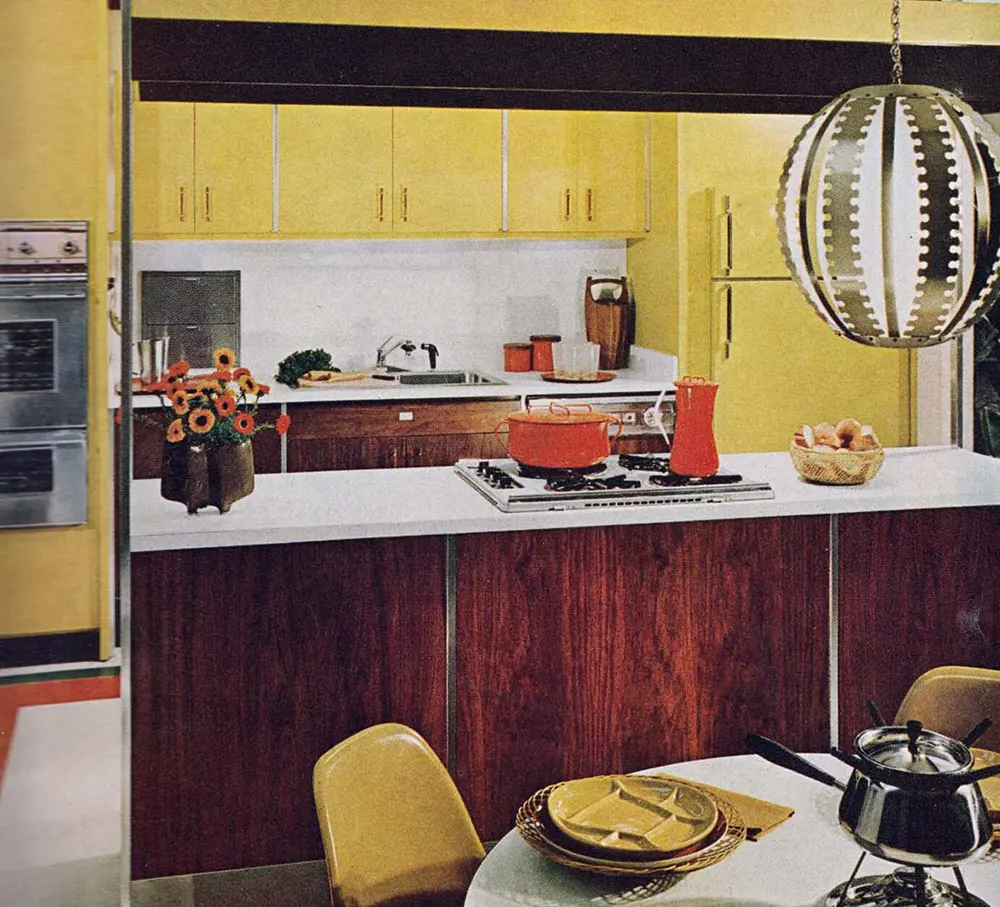
Retro kitchens of the future emphasized efficient space utilization and ergonomic designs. The layouts were carefully crafted to optimize workflow and minimize physical strain during food preparation.
Cabinetry and storage solutions were designed to maximize functionality while maintaining a sleek appearance.
Swing-out pantry systems, sliding shelves, and innovative storage compartments helped keep the kitchen organized and clutter-free.
The futuristic designs encouraged ease of movement, ensuring that everything needed for cooking was conveniently within reach.

Some envisioned robotic kitchen assistants that would chop, stir, and clean, freeing up time for other activities. Others proposed fully automated meal preparation systems capable of cooking complex dishes with precision.
Space-age technologies, like microwave ovens and touch-screen control panels, were seen as revolutionary innovations that would transform cooking methods.
The future kitchen was envisioned as a hub of connectivity, with appliances communicating seamlessly with each other and homeowners managing their kitchen through interactive interfaces.
Frigidaire Kitchen of the Future, 1957
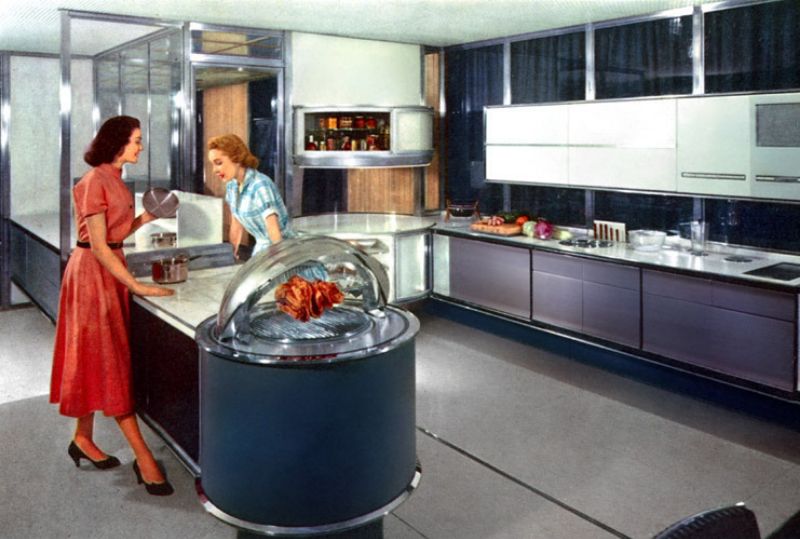
Note the chicken roaster pod.
Frigidaire, a leading household appliance manufacturer, envisioned the Kitchen of the Future as a revolutionary space that seamlessly integrated technology into daily culinary routines.
Their vision included innovative appliances such as an all-in-one food processor, juicer, and mixer that could be easily controlled and monitored via a central control panel.
Additionally, the Frigidaire Kitchen of the Future featured an automated pantry system that utilized a rotating carousel to present ingredients to the cook, reducing the time spent searching for items.
1961 GM Motorama Exhibit

A portable grill in a demonstration kitchen at the 1961 GM Motorama Exhibit. Photo courtesy of General Motors LLC.
Kitchen of the Future, 1943

This kitchen had built-in pots and pans that served as serving dishes and a variety of gadgets that haven’t been realized even today.
Electrochef Compact Kitchen of the Future, ca. 1920s

Cooking center in 1980 imagined in 1973
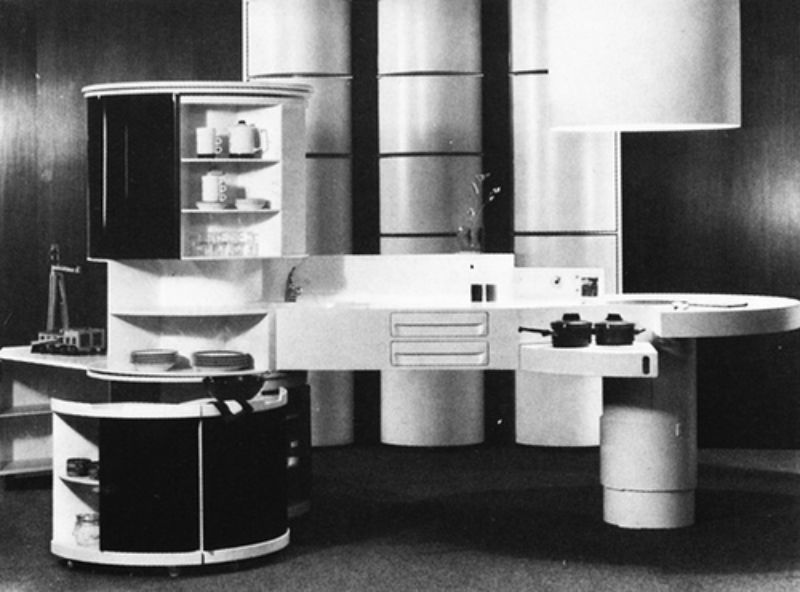
The Honeywell Kitchen Computer

Monsanto Kitchen of the Future

Powered refrigeration shelves, microwave range, ultrasonic dishwasher.
The Monsanto Kitchen of the Future, presented at Disneyland’s Tomorrowland in the 1950s, showcased an ambitious vision of a technologically advanced culinary environment.
This futuristic kitchen concept aimed to eliminate waste, simplify meal planning, and promote healthier eating habits.
The kitchen featured automated meal preparation systems capable of creating customized, nutritionally balanced meals based on individual dietary needs.
The Monsanto Kitchen of the Future also introduced the concept of hydroponic gardening, allowing homeowners to grow fresh produce year-round in a controlled environment.
The Classic Whirlpool Miracle Kitchen, 1959
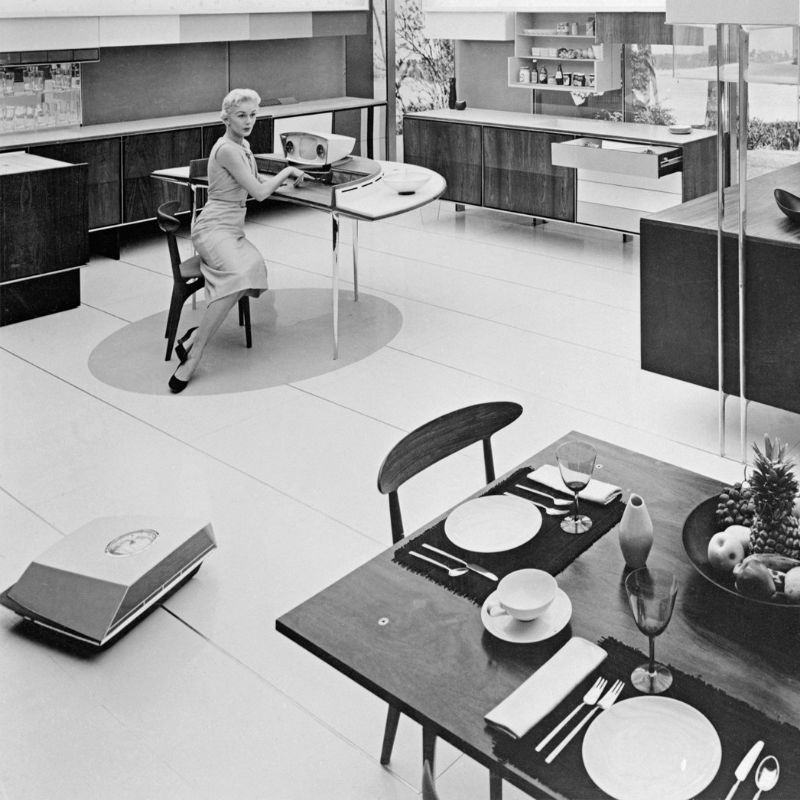
An elegantly styled woman poses at the central command desk in the RCA/ Whirlpool Miracle Kitchen that advertised: ‘Household chores in the future will be gone for the American housewife at the touch of a button or the wave of a hand.
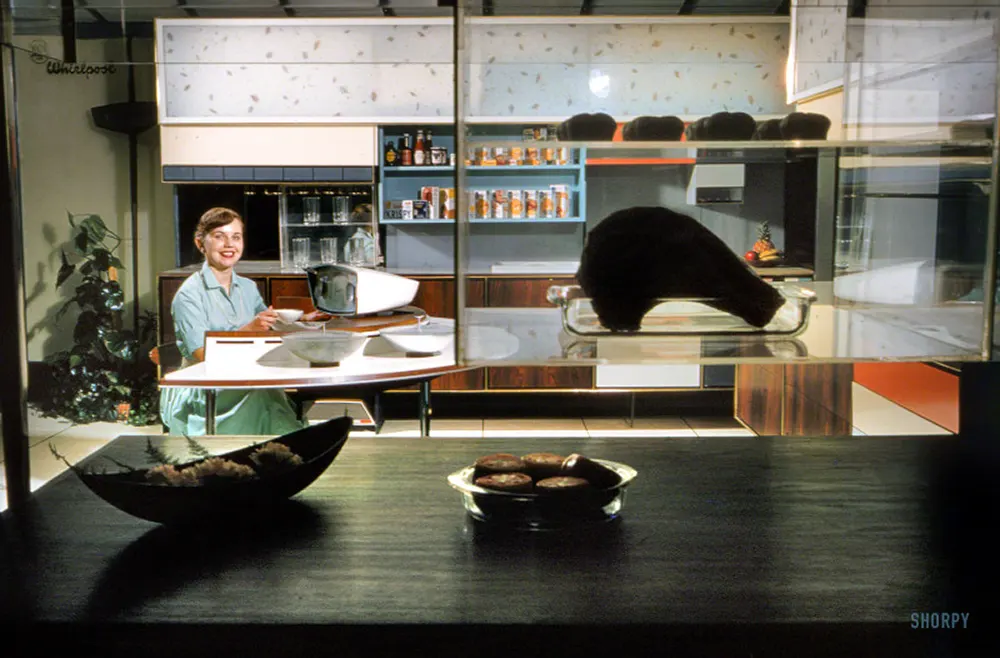
The Classic Whirlpool Miracle Kitchen, unveiled in the 1960s, sought to revolutionize the culinary experience by introducing cutting-edge appliances and forward-thinking design concepts.
This kitchen of the future featured a sleek, space-age aesthetic with modular components that could be easily rearranged to adapt to various cooking needs.

Whirlpool incorporated innovative features such as a microwave oven, self-cleaning ovens, and integrated countertop appliances to streamline cooking processes.
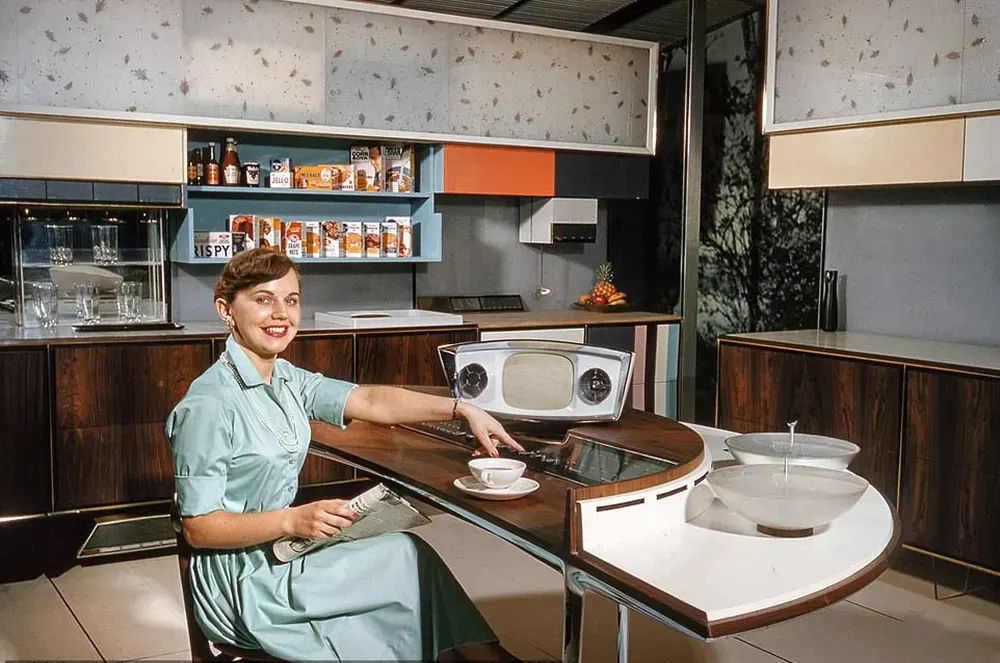
Whirlpool’s ‘Miracle Kitchen of the Future’ display at the American National Exhibition in Moscow, 1959.
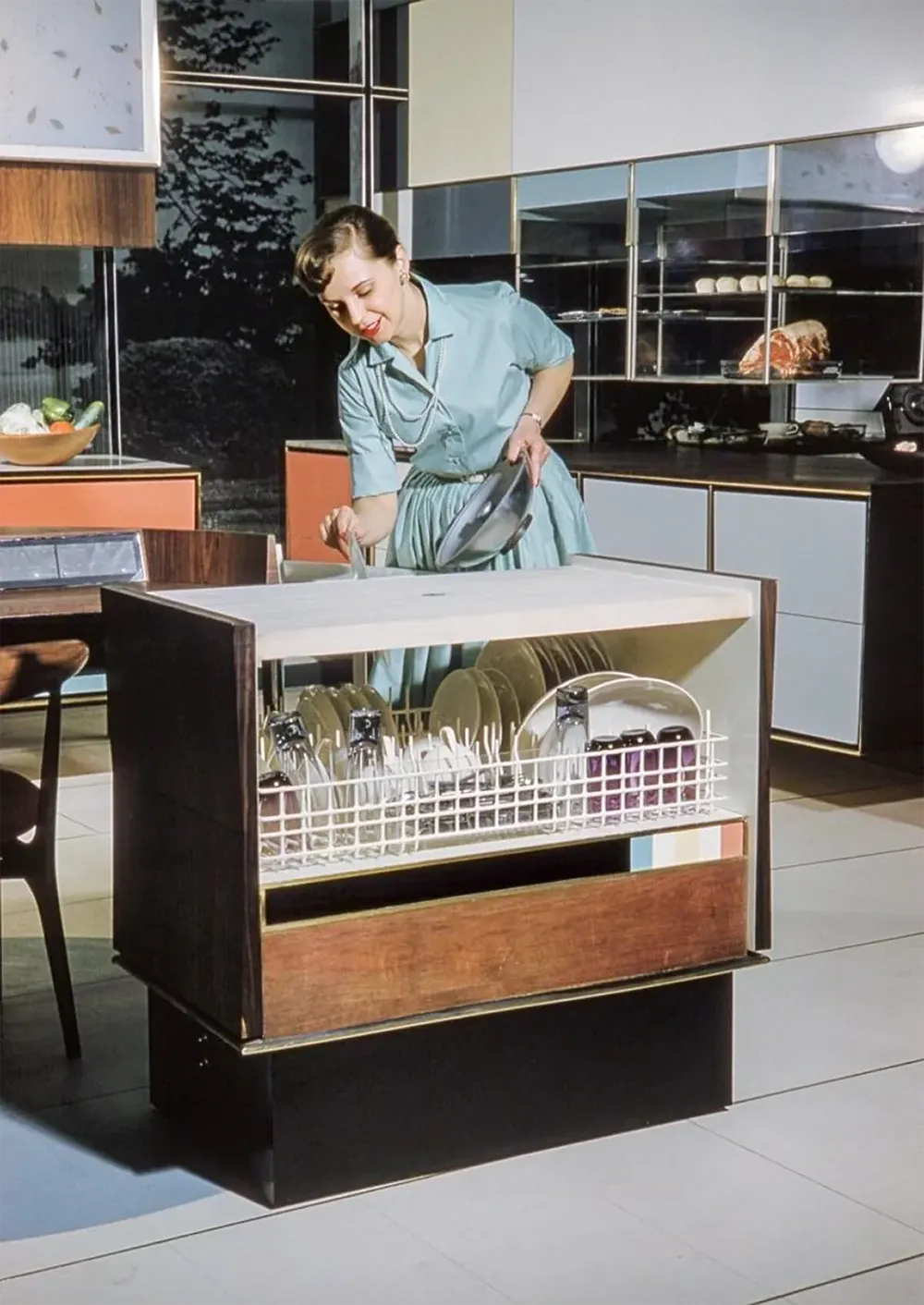

Two demonstrators showcase the high-tech capabilities of the Whirpool Miracle Kitchen; a man watches as the ‘self-propelled serving cart’ delivers dishes and silverware to the table while a woman commands it with the simple press of a button at the control station.
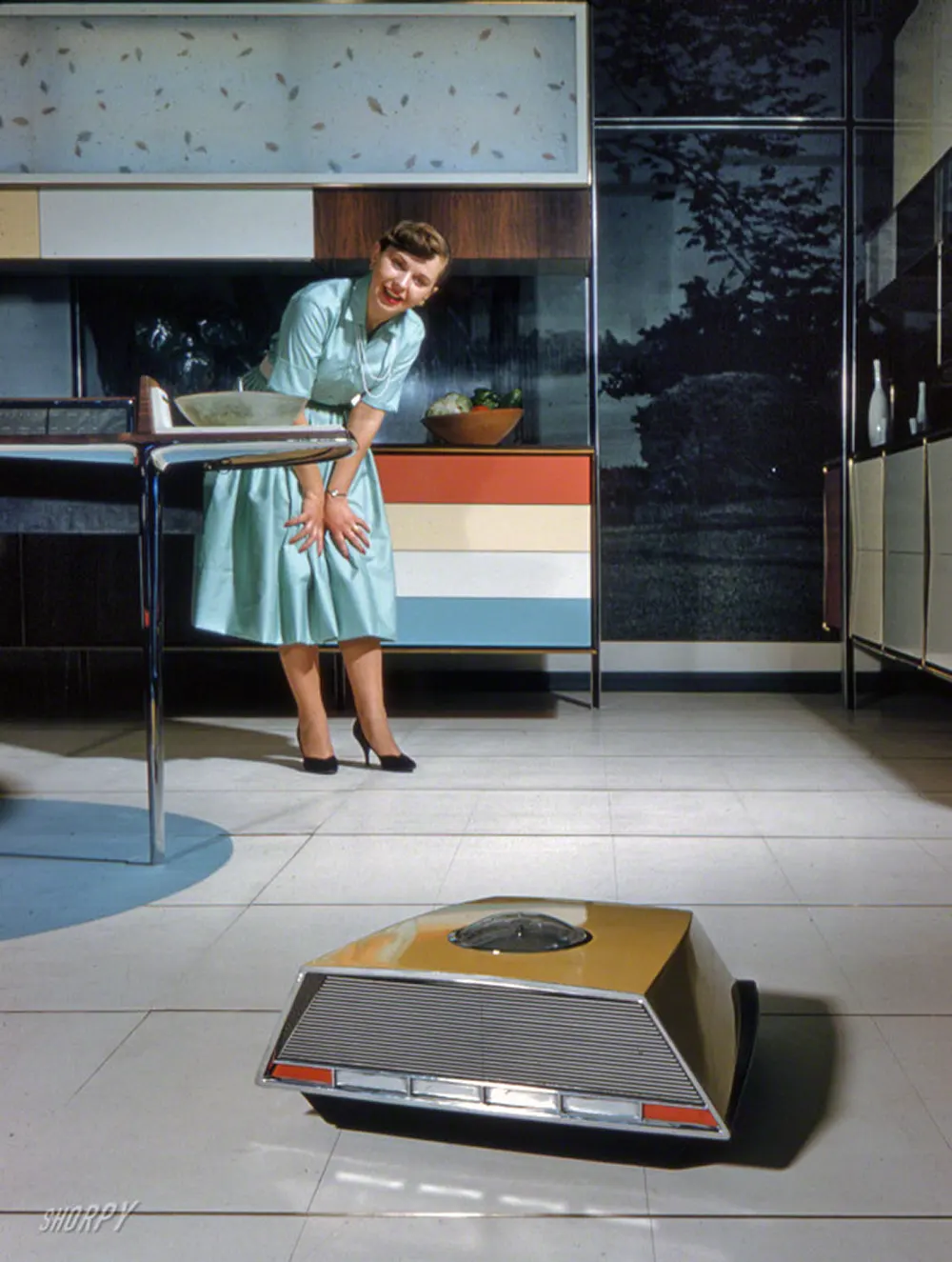
The Classic Futuristic Kitchen Scene From Mon Oncle
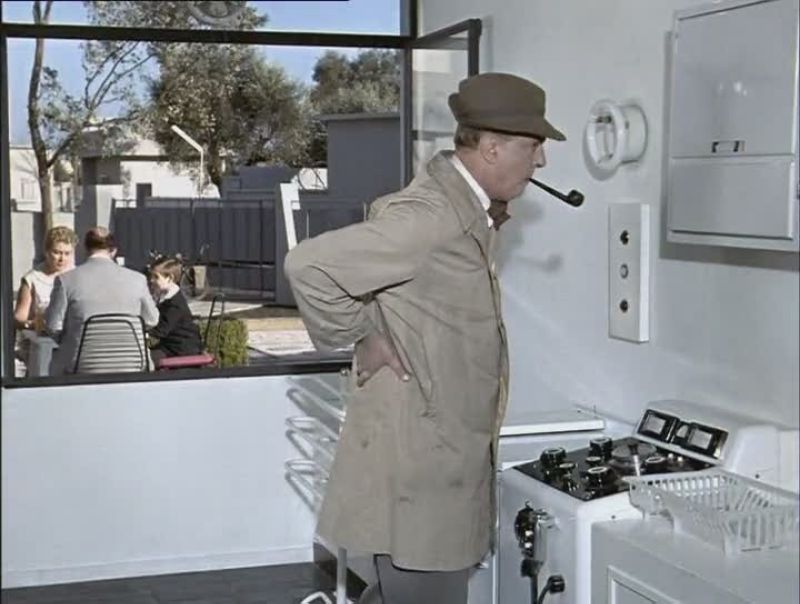
Fat Duck Restaurant Development Kitchen

Less a kitchen of the future than a monument to the now declining trend of tasting menu based, over innovated, restaurant cooking.
Bizarre Full Circle, Modern-Retro-Modern Kitchen Island by Sheer
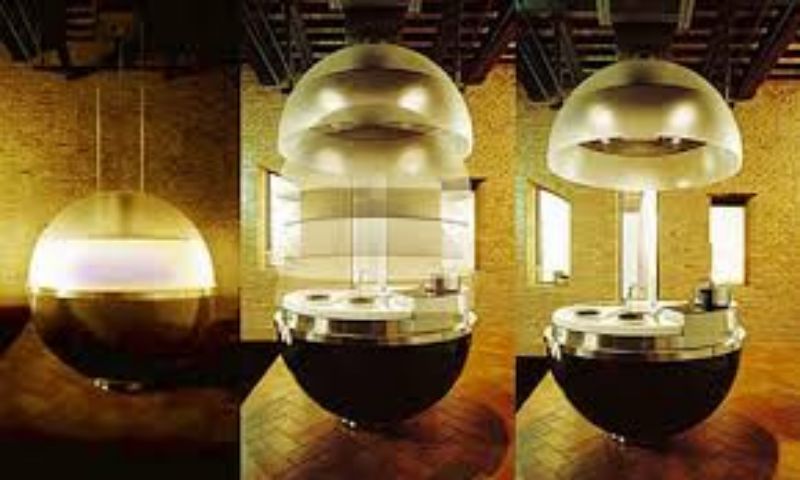
General Electric Kitchen Dashboard
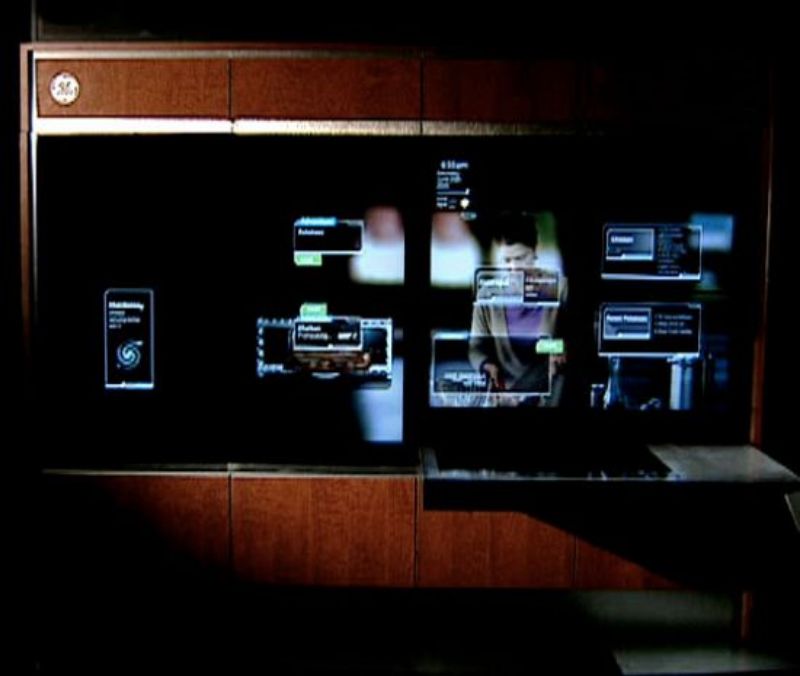
Philco-Ford Corporation Kitchen of Tomorrow, 1967
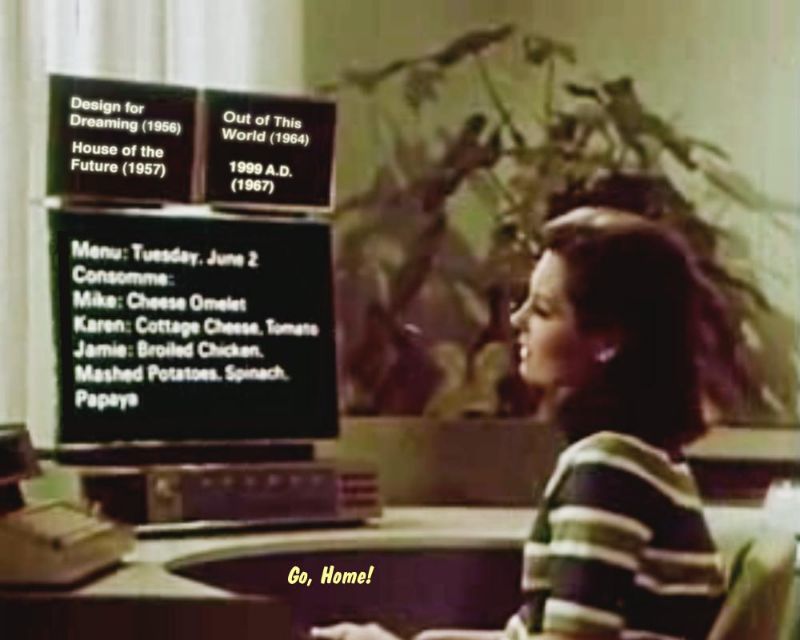
‘The Dining Room of the Future’

‘The Dining Room of the Future’ by Alison and Peter Smithson, 1956.
Shipping via the Kitchen, 1950s
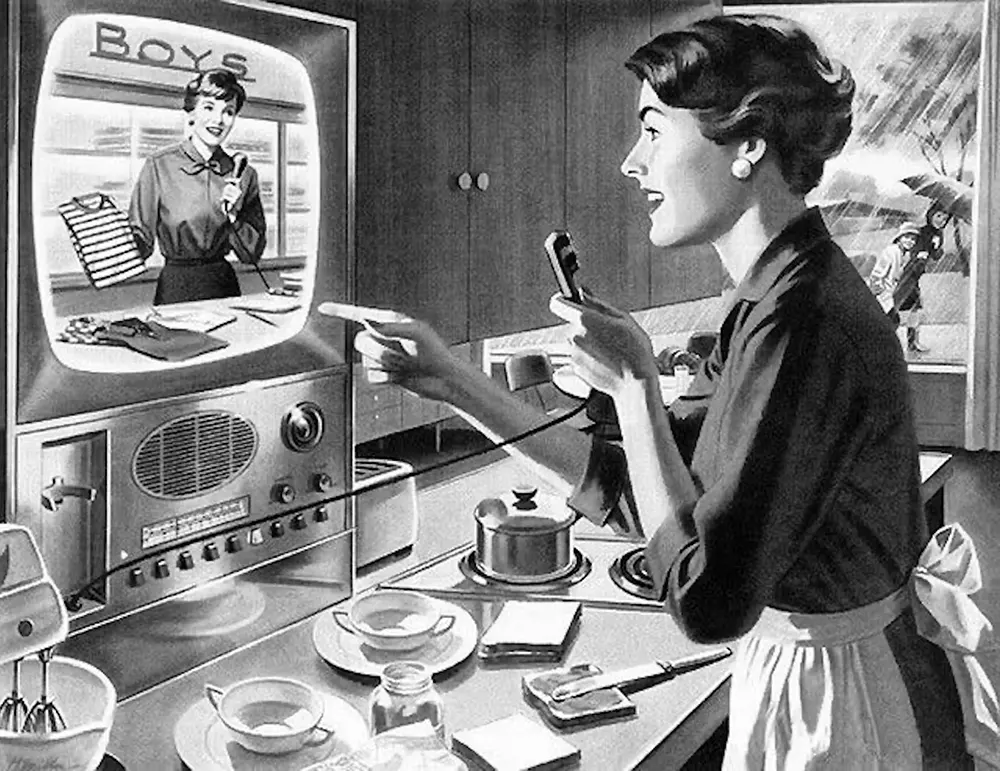
The would-be online shopping of the 1950s.
Even during the retro era, concerns about environmental sustainability were considered in kitchen designs. Energy-efficient appliances were introduced to reduce electricity consumption.
Designers also emphasized the integration of natural lighting, maximizing the use of windows and skylights.
Solar-powered appliances and waste recycling systems were explored as potential solutions to reduce the environmental impact of kitchen activities.
(Photo credit: Pinterest / Library of Congress / Wikimedia Commons / Flickr).
Updated on: July 12, 2023
Any factual error or typo? Let us know.



